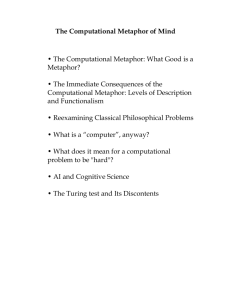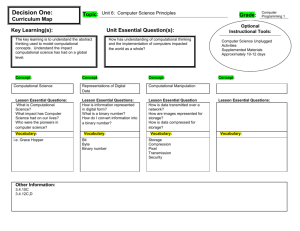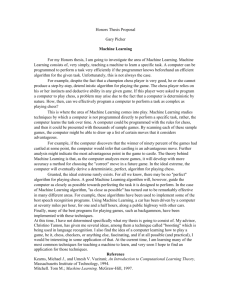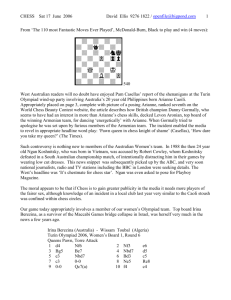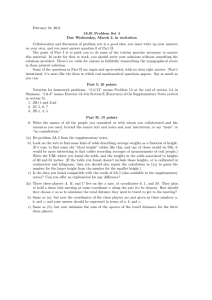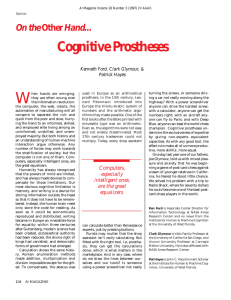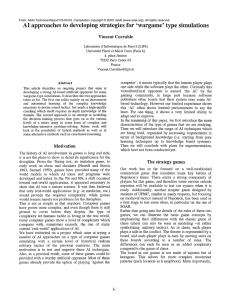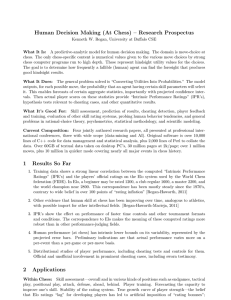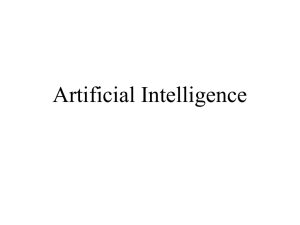IB Computer Science
advertisement
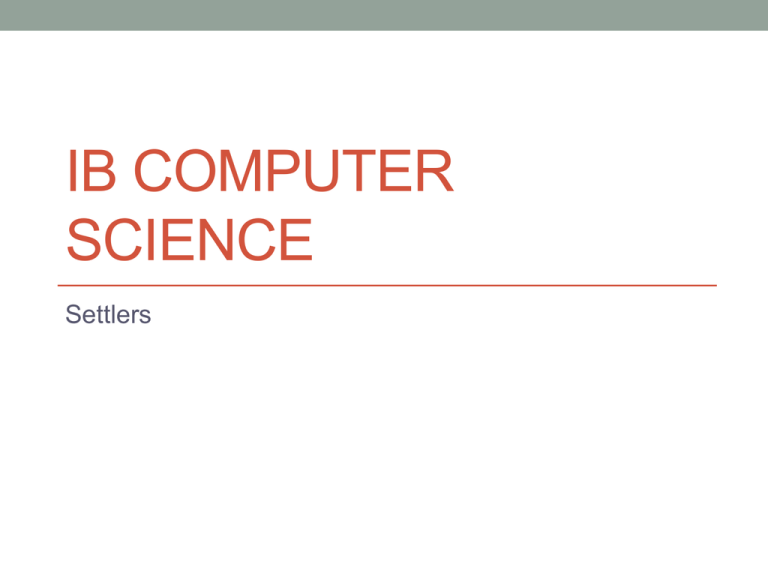
IB COMPUTER SCIENCE Settlers EASY • A chess machine can beat the top human chess players. • Does a machine therefore “know” how to play chess? • It has been said that human memory is more like an improvised performance than a movie on a DVD. • What does this mean? How does human memory differ from computer memory? • How does a computer language differ from a natural language? MEDIUM • How do we know if other humans feel emotions? • Can a machine ever feel an emotion? • How would we know? • What is the difference between data, information, knowledge and wisdom? • To what extent can computers store and impart data, information, knowledge and wisdom? • What are the differences between representing numbers in denary and in binary? In binary, 1 + 1 = 10. • Does this tell us anything about the nature of mathematical truth? • What are the challenges of creating a computer model of some aspect of the world? • If we attach a camera or microphone to a computer, it can receive data from the world. • Does this mean that a computer can “perceive the world”? • To what extent might human perception be a similar process? • Does information and communication technology, like deduction, simply allow the knower to arrange existing knowledge in a different way, without adding anything, or is this arrangement itself knowledge in some sense? • Was Akio Morita correct when he claimed that “You can be totally rational with a machine but if you work with people, sometimes logic has to take a back seat to understanding”? TRICKY • Computational thinking includes: procedure, logic, pre- planning (thinking ahead), concurrency, abstraction and recursion. • To what extent are these ways of thinking distinct? • To what extent can knowledge in different areas (mathematics, ethics, and so on) be analysed in these ways? • To what extent does computational thinking challenge conventional concepts of reasoning? • What did Sydney Harris mean when he said that “The real danger is not that computers will begin to think like men, but that men will begin to think like computers”? • Was he right, or was this statement based on a misunderstanding of either men or computers? • What do we mean by “holistic” and “reductionist” approaches to knowledge? • What are the strengths and weaknesses of each approach? • To what extent is it possible to capture the richness of concepts such as “intelligence” or “judgment” via a reductionist approach?

